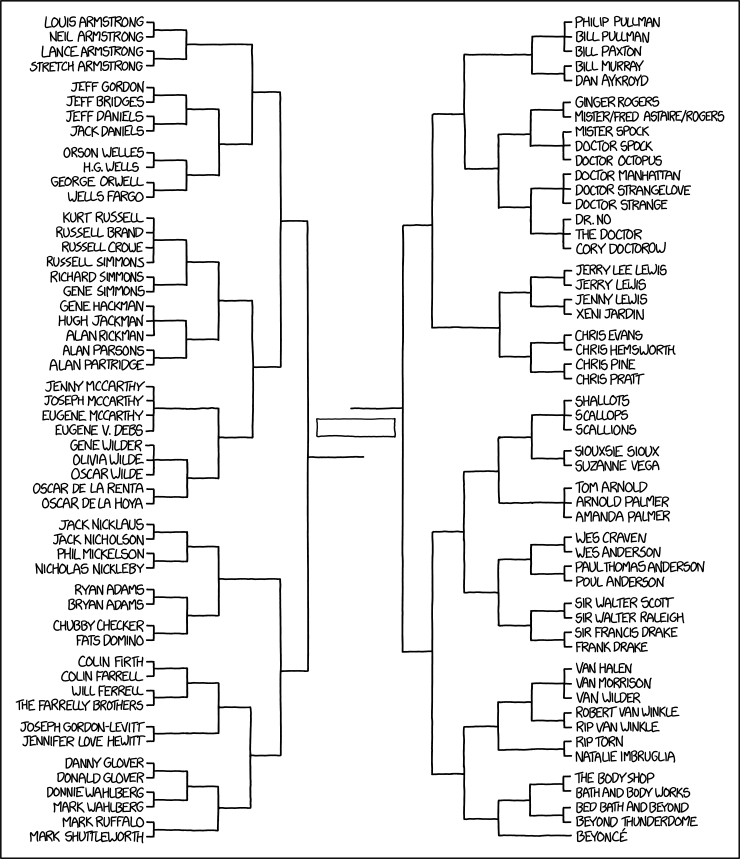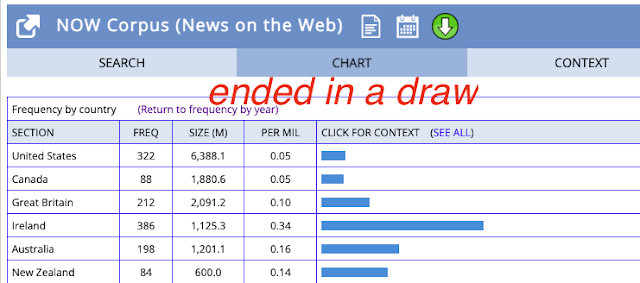It's FIFA World Cup Time, a fact that is hard to avoid in this part of the world. I am not the kind of person who’s interested in watching it, regardless of who’s playing or where it’s being held. But I'm nothing if not opportunistic, so I'll use this as an excuse to write about some linguistic differences related to sport(s) more generally.
It’s old news that the British mostly call it football and Americans mostly call it soccer. It’s even older news that the name soccer is actually British. To quote myself (from The Prodigal Tongue):
Britain, Americans call your football soccer because you taught them to. Just like rugger is a nickname for rugby football, soccer came from the full name of the game, association football. The word comes from England. You should be proud of it.
But that’s not the difference I want to feature this time. I want to talk about fixtures. If your eyesight’s good (the words are very faint, for some reason), you can see the term repeatedly used on the local team’s website (I've added the purple boxes to highlight them):
BrE fixture in this sense means ‘who’s "fixed" to play whom when’. In the plural, it's the whole list of who's playing whom when. It's a necessary word at any kind of tournament in the UK. I initially learned it through tournament Scrabble (at my first UK tournament 22 years ago), and I recall it (probably orig. AmE) throwing me for a loop then.
You won’t see the word fixtures on most American sports sites or advertising. Instead, you’ll see schedule, as seen here for my "local" (BrE) American football /(AmE) football team back in the US:
In The Prodigal Tongue, I cover the strange history of the pronunciation of schedule. (If you haven't read it, tell Santa. Or your nearest bookseller.) In that discussion, I note that the word schedule is used much more in AmE than BrE, because BrE uses other words for the things Americans call schedules in various contexts. Words like: timetable, programme, and fixtures.
A related term is AmE bracket, which derives from the use of this kind of diagram for showing who's playing whom in an elimination tournament. (For more on differences in the punctuation term bracket, see here.) Randall Munroe, at his comic xkcd, has done some fantastic brackets, like this one, which I will share because we've had enough sports talk now, haven't we?
 |
| click image to enlarge |
In BrE one might instead talk about the draw, i.e. who's been "drawn" (as if from a hat) to play against whom. Bracket is a bit different from draw because it's not just who's playing whom in the initial random arrangement, but also eventually who's playing whom all the way up the various rounds of competition.
And speaking of draw, England were drawn against USA this week, and it ended in a 0–0 draw, which could also be called a tie. Tie is generally more common in AmE, but it's used in BrE too.
Here's 'ended in a tie/draw' in the News on the Web corpus:
If you’re interested in more football/soccer-related content, here are a couple of posts:
And in case you missed it, I now have a (hopefully usually) weekly newsletter in which I will be sharing news of new blog posts (like this one) and other US/UK and linguistic content.
Sign up here if you haven't already!











